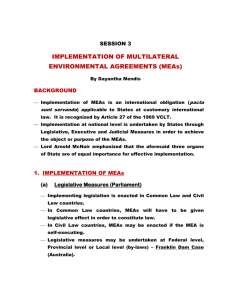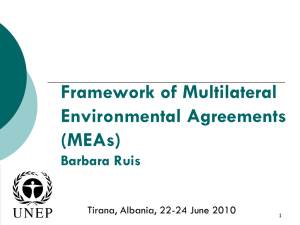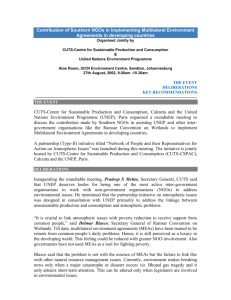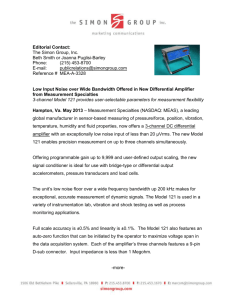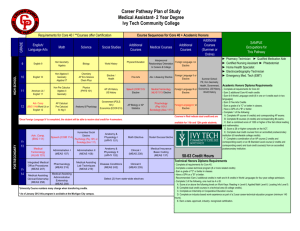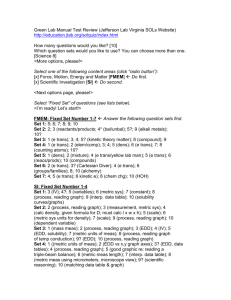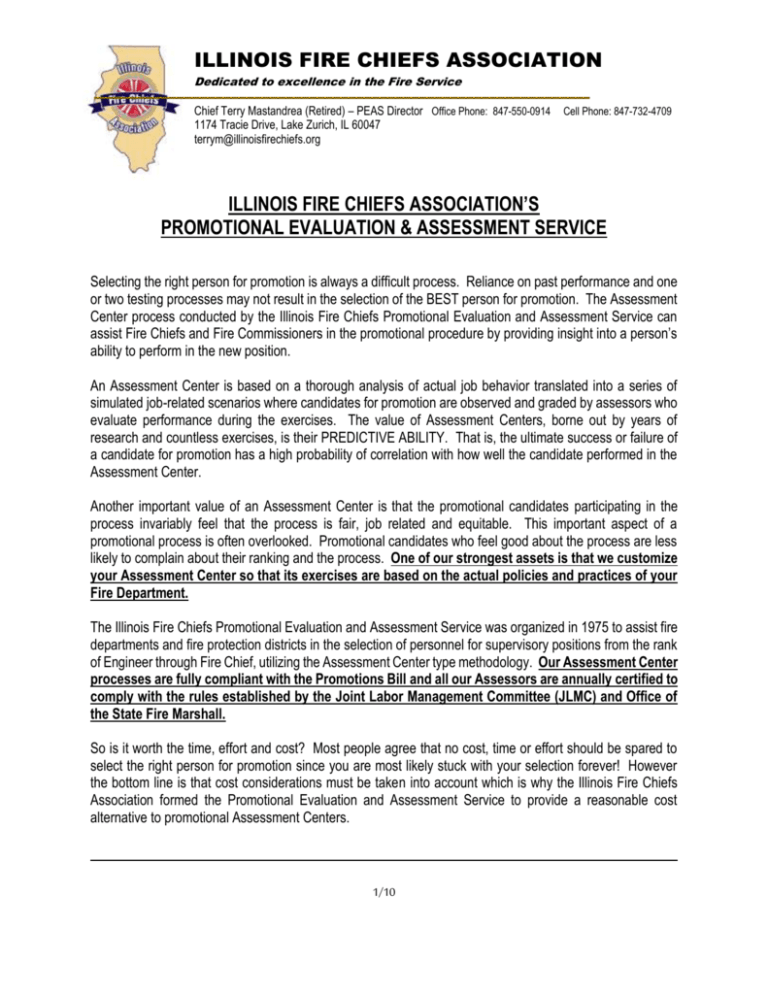
ILLINOIS FIRE CHIEFS ASSOCIATION
Dedicated to excellence in the Fire Service
Chief Terry Mastandrea (Retired) – PEAS Director Office Phone: 847-550-0914
1174 Tracie Drive, Lake Zurich, IL 60047
terrym@illinoisfirechiefs.org
Cell Phone: 847-732-4709
ILLINOIS FIRE CHIEFS ASSOCIATION’S
PROMOTIONAL EVALUATION & ASSESSMENT SERVICE
Selecting the right person for promotion is always a difficult process. Reliance on past performance and one
or two testing processes may not result in the selection of the BEST person for promotion. The Assessment
Center process conducted by the Illinois Fire Chiefs Promotional Evaluation and Assessment Service can
assist Fire Chiefs and Fire Commissioners in the promotional procedure by providing insight into a person’s
ability to perform in the new position.
An Assessment Center is based on a thorough analysis of actual job behavior translated into a series of
simulated job-related scenarios where candidates for promotion are observed and graded by assessors who
evaluate performance during the exercises. The value of Assessment Centers, borne out by years of
research and countless exercises, is their PREDICTIVE ABILITY. That is, the ultimate success or failure of
a candidate for promotion has a high probability of correlation with how well the candidate performed in the
Assessment Center.
Another important value of an Assessment Center is that the promotional candidates participating in the
process invariably feel that the process is fair, job related and equitable. This important aspect of a
promotional process is often overlooked. Promotional candidates who feel good about the process are less
likely to complain about their ranking and the process. One of our strongest assets is that we customize
your Assessment Center so that its exercises are based on the actual policies and practices of your
Fire Department.
The Illinois Fire Chiefs Promotional Evaluation and Assessment Service was organized in 1975 to assist fire
departments and fire protection districts in the selection of personnel for supervisory positions from the rank
of Engineer through Fire Chief, utilizing the Assessment Center type methodology. Our Assessment Center
processes are fully compliant with the Promotions Bill and all our Assessors are annually certified to
comply with the rules established by the Joint Labor Management Committee (JLMC) and Office of
the State Fire Marshall.
So is it worth the time, effort and cost? Most people agree that no cost, time or effort should be spared to
select the right person for promotion since you are most likely stuck with your selection forever! However
the bottom line is that cost considerations must be taken into account which is why the Illinois Fire Chiefs
Association formed the Promotional Evaluation and Assessment Service to provide a reasonable cost
alternative to promotional Assessment Centers.
1/10
On the next several pages is information on the various promotional test plans describing the types of
exercises and the cost per candidate, depending on the number of exercises you select? Each exercise is
observed, evaluated and scored by at least three assessors. Typically, using four recommended exercises,
we would conduct your Assessment Center in one day using from three to six, or more, Assessors, depending
on the number of candidates. For the rank of Lieutenant we recommend four exercises; Group Problem
Solving Exercise, Writing Exercise (tied to the Group Exercise), Problem Employee Exercise and a Tactical
Exercise. For the ranks above Lieutenant we also recommend four exercises; Leaderless Group Problem
Solving Exercise, Writing Exercise (tied to the Group Exercise), Problem Employee Exercise and a Tactical
Exercise and/or Structured Oral Exercise.
We recommend you take advantage of an in-house Training Workshop for all the candidates prior to the
Assessment Center. The workshops will give the candidates an overview of the exercises they will be
participating in for the Assessment Center, as well as opportunities to practice sample exercises. We offer
a four hour Training Workshop or an eight hour Training Workshop. By choosing the eight hour Training
Workshop candidates will have more opportunities to practice sample exercises. Assessors that are
instructors for the Training Workshops do not participate in the Assessment Center.
We can also meet with the Commissioners/decision makers to discuss the candidates’ strengths and
weaknesses. If you choose this option it must be conducted immediately after the conclusion of the
Assessment Center. Finally, we offer the opportunity to meet with candidates, one on one, to discuss the
process and their strengths and weaknesses. This has proven to be a very valuable, and extremely
popular, tool for growth of the individual candidates.
To help develop your testing procedures the following information is needed in most cases; job description
for the position being filled; fire department organizational chart; drug and alcohol policy; sexual harassment
policy; discipline policy; sick leave policy; SOG’s related to the tactical exercise.
Further inquiries may be directed to:
Chief Terry Mastandrea, Ret.
Illinois Fire Chiefs Association, Promotional Evaluation & Assessment Service Director
E-mail: terrym@illinoisfirechiefs.org
CELL PHONE: 847-732-4709 (Best method for phone contact)
Phone/Fax:
847-550-0914
2/10
Illinois Fire Chiefs Association’s
Promotional Evaluation & Assessment Service
CONDUCTING PROMOTIONAL EXAMINATIONS USING ASSESSMENT CENTER
TYPE METHODOLOGY FOR FIRE DEPARTMENT SUPERVISORY POSITIONS
Listed below are nine promotional test processes. Select the plan most suitable and beneficial to your needs. The
Assessors will be Chief Fire Officers, or recently retired Chief Fire Officers, trained in observation skills and
Assessment Center techniques. Public Act 95-956, effective on August 29, 2008, provided new requirements
relative to the use of an “assessment center” in the promotional process (50 ILCS 742/50). Effective January 1,
2010, only individuals who are certified in accordance with the provisions approved by the Office of the State Fire
Marshal may be employed to grade candidates participating in the assessment center testing process. All our
assessors are certified with the Office of the State Fire Marshal.
Exercise A
In-Basket Exercise
Dimensions: Decision making skills, Organization and planning, Perception and analytical ability, Sensitivity,
Decisiveness, Oral communications, Poise, Energy, Delegation and Adaptability.
Approximate Time Per Candidate: 60 Minutes to complete & 20 Minutes to present
Description: Candidate is told he has been promoted to a higher level management position. His predecessor
has left much material in his in-basket, such as memos, letters and reports of varying importance. Given
approximately one hour the Candidate must deal with in-basket contents. He must write down every action he
would take including notes, letters, and conference agenda and phone calls. Following the written portion of the
exercise the Candidate is interviewed by the Assessors to determine his decisions, the reasons for his decisions
and other related information.
Exercise B Structured Oral Interview
Dimensions: The structured interview is to assess both attitudinal and background information on the
Candidate.
Approximate Time Per Candidate: 30 Minutes
Description: Candidate may be questioned in the following areas:
Fire Service in general
Local department rules, regulations, ordinance and operating procedures
Candidate’s desire to become a manager
Candidate’s view of management functions
3/10
Exercise C
Writing Exercise
Dimensions: Conforms to assigned objectives and group consensus, Presents problems and solutions, and
Writes completely and accurately, Logical order and Format.
Approximate Time Per Candidate: 20-60 Minutes
Description: This exercise is given to evaluate the Candidate’s written communication skills utilizing memos,
letters, etc. or a narrative format. Often, the Writing Exercise is used in conjunction with another Assessment
Center Exercise for more realism and relativity. Examples include writing a Tactical Narrative after a Tactical
Assessment Scenario, writing an After Action Report after an employee counseling session, and writing a
consensus report from a Group Problem Solving Exercise
Exercise D
Tactical Exercise
Dimensions: Knowledge of common fire ground practices, Knowledge of standard operating procedures,
Critical thinking, Reading Smoke, Problem Solving techniques, Safety, Judgment, Adaptability, Perception,
Leadership, Interpersonal skills and Delegation.
Approximate Time Per Candidate: 30 Minutes
Description: This exercise is a simulated incident in the community that may occur during officer’s tour of duty.
The Candidate is given an emergency fire/EMS/Haz-Mat situation in his community. The Candidate is evaluated
on the decisions he makes during this simulated emergency incident as they relate to common industry practices,
standard operating guidelines and local policies, procedures and expectations
Exercise E
Presentation Exercise
Dimensions: Ability to plan and organize their presentation, Written and oral communication skills, Problem
analysis and Presentation skills.
Approximate Time Per Candidate: 15-30 Minutes
Description: This exercise requires the Candidate to prepare an outline and then give a presentation before a
group (the Assessors). A wide range of topics, both traditional and current, are used to evaluate the Candidate’s
public speaking ability based on a limited preparation time. This exercise is intended to demonstrate the
candidate’s ability to present an idea, plan or lesson to various groups such as a crew, civic group, press,
Village/City Manager and/or Board. This exercise is also routinely tied to a Chief Officer Hiring Process where
the candidates start out with a Group Exercise.
Exercise F
Group Exercise
Dimensions: Communications, Problem Analysis, Planning, Organization, Leadership, Sensitivity, Decision
Making, Decisiveness, Development of Subordinates, Imitative, Listening and Persuasiveness.
Approximate Time Per Candidate: 60 Minutes
Exercise F.1 Problem Solving Group
Description: This exercise is designed for first level supervisors. Candidates work in a small group utilizing
their oral and writing skills to arrive at a solution to a problem and justify their position.
Exercise F.2 Leaderless Group
Description: This exercise is designed for middle and top management positions. The Candidates are required
to work together in a group (of 4 to 8); to reach a consensus with very limited information and limited direction.
The exercise is used to evaluate the individual’s ability to establish and work with informal leadership roles while
making decisions and solving problems.
4/10
Exercise G
Problem Employee Exercises/
Dimensions: Communications, Problem Analysis, Planning, Organization, Leadership, Sensitivity, Decision
Making, Decisiveness, Development of Subordinates, Interpersonal relations and Description and development
of an action plan.
Approximate Time Per Candidate: 30 Minutes
Exercise G.1 Employee Interview Simulation
Description: The exercise is based on a simulated situation that would require the Candidate to conduct a oneon-one interview with an employee (an Assessor).
Situations include employee counseling, a
superior/subordinate interview, a problem employee scenario and other similar situations.
The Employee Interview Simulation Exercise most often will deal with some type of a disciplinary or deficient
performance problem. However, other scenarios such as interviews with dissatisfied citizens, grievance
situations, or almost any other type of one-on-one situation encountered on the job.
5/10
PROPOSED RATES & CHARGES
Plan #5
Administer any five of the processes:
5a.
Assessment Center (scores only) = $730.00/candidate
(Minimum charge $1,660)(3 or fewer candidates’ $830/candidate)
5b
Assessment Center and a meeting with decision makers to discuss
candidates’ strengths/weaknesses = $830.00/candidate*
(Minimum charge $1,860)(3 or fewer candidates’ $930/candidate)
5c.
Meeting with candidates to discuss process/strengths/weaknesses =
$200/candidate for 1 ¼ hours**
5d.
4 hour Training Workshop = $500.00
5e.
8 hour Training Workshop = $1,000.00
Plan #4
Administer any four of the processes (RECOMMENDED):
4a.
Assessment Center (scores only) = $660.00/candidate
(Minimum charge $1,520)(3 or fewer candidates’ $760/candidate)
4b
Assessment Center and a meeting with decision makers to discuss
candidates’ strengths/weaknesses = $760.00/candidate*
(Minimum charge $1,720)(3 or fewer candidates’ $860/candidate)
4c.
Meeting with candidates to discuss process/strengths/weaknesses =
$180/candidate for 1 hour**
4d.
4 hour Training Workshop = $500.00
4e.
8 hour Training Workshop = $1,000.00
Plan #3
Administer any three of the processes:
3a.
Assessment Center (scores only) = $560.00/candidate
(Minimum charge $1,320)(3 or fewer candidates’ $660/candidate)
3b
Assessment Center and a meeting with decision makers to discuss
candidates’ strengths/weaknesses = $660.00/candidate*
(Minimum charge $1,520)(3 or fewer candidates’ $760/candidate)
3c.
Meeting with candidates to discuss process/strengths/weaknesses =
$145/candidate for ¾ hour**
3d.
4 hour Training Workshop = $500.00
3e.
8 hour Training Workshop = $1,000.00
Plan #2
Administer any two of the processes:
2a.
Assessment Center (scores only) = $500.00/candidate
(Minimum charge $1,320)(3 or fewer candidates’ $660/candidate)
2b
Assessment Center and a meeting with decision makers to discuss
candidates’ strengths/weaknesses = $600.00/candidate*
(Minimum charge $1,520)(3 or fewer candidates’ $700/candidate)
2c.
Meeting with candidates to discuss process/strengths/weaknesses =
$130/candidate for 1/2 hour**
2d.
2 hour Training Workshop = $250.00
6/10
2e.
Plan #1
4 hour Training Workshop = $500.00
Administer any one of the processes:
1a.
Assessment Center (scores only) = $345.00/candidate
(Minimum charge $1,000)(3 or fewer candidates’ $500/candidate)
1b
Assessment Center and a meeting with decision makers to discuss
candidates’ strengths/weaknesses = $445.00/candidate*
(Minimum charge $1,090)(3 or fewer candidates’ $545/candidate)
1c.
Meeting with candidates to discuss process/strengths/weaknesses =
$110/candidate for ¼ hour**
1d.
2 hour Training Workshop = $250.00
1e.
4 hour Training Workshop = $500.00
* This rate applies when meeting is scheduled immediately after the Assessment Center process is
completed. Additional charges and conditions apply when the meeting is not in conjunction with the
Assessment Center.
** This rate applies when meetings are scheduled within one week after the Assessment Center process is
completed. Additional charges and conditions may apply when the meeting is not in within one week of the
Assessment Center.
ADDITIONAL/PROVIDED:
1.
2.
3.
4.
5.
6.
Minimum of three Assessors when three or more candidates participate.
Department head process $50.00 extra per Candidate.
Travel time, food and lodging expenses would be in addition to the proposed fees for the plan
selected.
$150 per candidate for additional processes above Plan #5
Depending on the type and number of processes an additional administrative charge for preparation
may apply.
Candidate cancellations within 24 hours of Assessment Center will be charged full rate.
7/10
WRITTEN EXAMINATIONS:
100-QUESTION WRITTEN TESTS
STUDY GUIDES ARE NOT TYPICALLY USED IN OUR TESTING.
While our tests are predominantly Multiple Choice, We do have the ability to develop True/False questions
if the jurisdictions desire. Many of the True/False questions are interpretative questions that require an
understanding of the topic to answer correctly, not just a passage from the book asking if it is True or False.
The IFCA utilizes third party test writers to develop the Written Exams which are based on a diverse library
of common and updated Resource Books that deal with the dimensions the client desires to evaluate the
candidate’s knowledge, comprehension and understanding on.
The fee for a 100 question Written Test would be based on the following elements in the form of a
Written Quote once the process and structure is determined:
Test booklets (includes set-up fee and answer sheets)
Questions:
Standard True/False questions from IFCA resource library
Standard Multiple Choice questions from IFCA library
Specialized textbooks/publications
Local source questions
Test administration/scoring by IFCA
Electronic scoring with question feedback by the Test Writer (2-3 days)
Meeting with participants to review test on same day as test
Meeting with participants to review test after date of test
Minimum testing preparation fee (test booklets & questions)
Assessor travel expenses quoted as “not to exceed” based on jurisdiction
A typical 100 Standard Question Written Exam
A Typical 75 Standard Question & 25 Local Source Questions Written Exam
A typical 100 Local/Custom Question Written Exam
*Local/Custom materials (contract, SOG’s, Rules, etc.)
Further inquiries may be directed to:
Chief Terry Mastandrea, Ret.
Illinois Fire Chiefs Association, Promotional Evaluation & Assessment Service Director
E-mail: terrym@illinoisfirechiefs.org
CELL PHONE: 847-732-4709 (Best method for phone contact)
Phone/Fax:
847-550-0914
8/10
$2,000
$3,000
$5,000
WRITTEN EXAMINATION RESOURCE LIBRARY
FIRE RESOURCE LIST
March 12, 2016
This is a partial list of books in the MEAS library. Most of the books on this list can be used as standard sources on our
examinations. We may also be able to include other books of general use as standard sources on our examinations. While we
have attempted to keep this list current, some of the books will be out-of-print or in new editions. Prior to selecting any book for
use on a customized reading list, contact MEAS to establish that the book you want to use is still current and readily available for
purchase.
SUPERVISION
Effective Supervisory Practices: Better Results Through Teamwork.................................................................................. MEAS 803
(2005, 4th ed.). ICMA. ISBN 0-87326-176-3.
Crew Resource Management for the Fire Service ...................................................................................................................... MEAS 808
(2004). Okray, Lubnau II. Fire Engineering.
From Buddy to Boss: Effective Fire Service Leadership ............................................................................................................ MEAS 833
(2006). Chase Sargent. PennWell.
Fire and Emergency Services Company Officer............................................................................................................................................. MEAS 885
(2007, 4th ed.). IFSTA.
Note: Fire Officer Level I: Part A Only.
Fire Officer Level II: Part B, PLUS Chapters 2, 4, 6, 7, 8, 18 of Part A
Company Officer ................................................................................................................................................................................................................ MEAS 893
(2010, 3rd ed.). Clinton H. Smoke, Charlie Keeton, Bill Jack Wenzel, & Bradford Boyd. Delmar/Cengage.
Fire Officer Principles and Practice, International Association of Fire Chiefs.......................................................................... MEAS 895
(2010, 2nd ed.). Jones and Bartlett.
Supervision: Managing for Results........................................................................................................................................................................ MEAS 922
(2012, 10th ed.). John W. Newstrom. McGraw-Hill.
Note: (Chapters 1-15 - No questions will be drawn from the sections called Reading Comprehension, Self-Assessment, Skill Development, Group
Exercises, Role Play, Cases for Analysis, or the Appendices, although the reader may find this material interesting and an aid to learning).
9/10
MANAGEMENT
Risk Management in the Fire Service .................................................................................................................................................................. MEAS 659
(1997). Steven S. Wilder. Fire Engineering.
Managing Fire and Rescue Services ...................................................................................................................................................................... MEAS 704
(2002). Dennis Compton & John Granito (Eds.). ICMA.
The Fire Chief’s Handbook .......................................................................................................................................................................................... MEAS 725
(2003, 6th ed.). Robert C. Barr & John M. Eversole (Eds.). Fire Engineering.
Public & Media Relations for the Fire Service ................................................................................................................................................ MEAS 728
(1999). Tim Birr. PennWell.
Strategies for Marketing Your Fire Department Today & Beyond ................................................................................................... MEAS 729
Federal Emergency Management Agency: US Fire Administration, (www.usfa.dhs.gov/downloads/pdf/ publications/marketingpdf).
Chief Officer.......................................................................................................................................................................................................................... MEAS 756
(2004, 2nd ed.). IFSTA
Chief Fire Officer’s Desk Reference ...................................................................................................................................................................... MEAS 805
(2006). International Association of Fire Chiefs. John M. Buckman III. Jones & Bartlett.
Fire and Emergency Service Administration: Management & Leadership
Practices................................................................................................................................................................................................................................... MEAS 827
(2006). L. Charles Smeby, Jr.. Jones & Bartlett.
Fire Service Personnel Management .................................................................................................................................................................... MEAS 919
(2010, 3rd ed.). Steven T. Edwards. Pearson/Prentice-Hall.
Fire Department Strategic Planning ..................................................................................................................................................................... MEAS 846
(2006, 2nd ed.). Mark Wallace. PennWell.
Management in the Fire Service.............................................................................................................................................................................. MEAS 847
(2008, 4th ed.). Harry R. Carter & Erwin Rausch. NFPA.
Fire Officer Principles and Practice ....................................................................................................................................................................... MEAS 895
(2010, 2nd ed.). International Association of Fire Chiefs. Jones and Bartlett.
Managing Fire and Emergency Services............................................................................................................................................................. MEAS 931
(2012, 1st ed.). Adam K. Thiel, Charles R. Jennings. ICMA.
10/10
MEAS FIRE RESOURCE LIST
PREVENTION
Creating a Fire-Safe Community ............................................................................................................................................................................. MEAS 657
(1999). Tom Kiurski. PennWell.
NFPA 101 Life Safety Code................................................................................................................................................................MEAS 654
(Current ed.). NFPA.
Automatic Sprinkler and Standpipe Systems ................................................................................................................................................. MEAS 661
(1997, 3rd ed.). John L. Bryan. NFPA.
Introduction to Fire Origin and Cause................................................................................................................................................................. MEAS 788
(2005, 3rd ed.). IFSTA.
Fire Detection and Suppression Systems .......................................................................................................................................................... MEAS 918
(2011, 4th ed.). IFSTA.
NFPA 921 Guide for Fire & Explosion Investigations ................................................................................................................................. MEAS 857
(2008 ed.).
Fire Prevention Applications ..................................................................................................................................................................................... MEAS 831
(2005, 1st ed.). Brett Lacey & Paul Valentine. Fire Protection Publications.
Brady, Kirk’s Fire Investigation ................................................................................................................................................................................ MEAS 832
(2007, 6th ed.). John D. DeHaan. Prentice-Hall.
Brady, Fire Prevention: A Comprehensive Approach ................................................................................................................................ MEAS 835
(2002, 1st ed.). Jim Crawford. Prentice-Hall.
Fire Inspection and Code Enforcement............................................................................................................................................................... MEAS 894
(2009, 7th ed.). IFSTA.
Fire Prevention Applications For The Company Officer.......................................................................................................................... MEAS 896
(2010, 1st ed.). Brett Lacey & Paul Valentine. NFPA.
Fire and Life Safety Educator ..................................................................................................................................................................................... MEAS 920
(2011, 3rd ed.). IFSTA.
11/10
MEAS FIRE RESOURCE LIST
Fire Investigator ................................................................................................................................................................................................................. MEAS 921
(2010, 2nd ed.). IFSTA.
FIREFIGHTER - BASIC
Tools of the Trade .............................................................................................................................................................................................................. MEAS 621
(1997). Richard A. Fritz. PennWell.
Firefighter’s Handbook Firefighting and Emergency Response ........................................................................................................ MEAS 888
(2008, 3rd ed.). Delmar.
Fundamentals of Fire Fighter Skills ....................................................................................................................................................................... MEAS 829
(2004, 1st ed.). IAFC/NFPA. Jones and Bartlett.
Essentials of Fire Fighting and Fire Department Operations ............................................................................................................... MEAS 848
(2008, 5th ed.). IFSTA.
Fire Service Ground Ladders ...................................................................................................................................................................................... MEAS 568
(1996, 9th ed.). IFSTA.
DRIVER ENGINEER
Tools of the Trade .............................................................................................................................................................................................................. MEAS 621
(1997). Richard A. Fritz. PennWell.
Hose Practices...................................................................................................................................................................................................................... MEAS 758
(2004, 8th ed.). IFSTA.
Fire Department Pumping Apparatus Maintenance ................................................................................................................................. MEAS 763
(2005, 1st ed.). Fire Protection Publications.
Pumping Apparatus Driver/Operator Handbook ........................................................................................................................................ MEAS 807
(2006, 2nd ed.). IFSTA.
Note:
(OMIT Metric Version of Chapter 8)
Truck Company Operations ....................................................................................................................................................................................... MEAS 862
(2006). John Mittendorf. PennWell.
Introduction to Fire Pump Operations................................................................................................................................................................ MEAS 863
(2005). Thomas B. Sturtevant. Delmar.
12/10
MEAS FIRE RESOURCE LIST
Engine Company Fireground Operations .......................................................................................................................................................... MEAS 868
(2008, 3rd ed.). Harold Richman. NFPA. Jones & Bartlett.
Ladder Company Fireground Operations.......................................................................................................................................................... MEAS 876
(2008, 3rd ed.). Harold Richman. NFPA. Jones & Bartlett.
Aerial Apparatus Driver/Operator Handbook ............................................................................................................................................... MEAS 889
(2009, 2nd ed.). IFSTA.
Structural Fire Fighting: Truck Company Skills and Tactics ................................................................................................................. MEAS 904
(2010, 2nd ed.). IFSTA.
EMS
Officer’s Guide to Fire Service EMS ....................................................................................................................................................................... MEAS 647
(1999). Gordon M. Sachs. Fire Engineering.
Brady: Mass Casualty and High-Impact Incidents: An Operations Guide ................................................................................... MEAS 675
(2002). Hank Christen & Paul M. Maniscalco. Prentice-Hall.
Introduction to EMS Systems .................................................................................................................................................................................... MEAS 733
(2002). Bruce Walz. Delmar
Prehospital Emergency Care ...................................................................................................................................................................................... MEAS 798
(2004, 7th ed.). Joseph J. Mistovich, Brent Q. Hafen, & Keith J. Karren. Prentice-Hall.
Principles of EMS Systems ........................................................................................................................................................................................... MEAS 884
(2006, 3rd ed.). John A. Brennan & Jon R. Krohmer. American College of Emergency Physicians.
Jones & Bartlett.
Florida Regional Common EMS Protocols ...................................................................................................................................................... MEAS L438
(2012, 3rd ed.). Jones and Bartlett.
Brady Emergency Care.................................................................................................................................................................................................... MEAS 924
(2012, 12th ed.). Michael F. O’Keefe & Daniel Limmer. Pearson.
BUILDING CONSTRUCTION
Brannigan’s Building Construction for the Fire Service........................................................................................................................... MEAS 826
13/10
MEAS FIRE RESOURCE LIST
(2008, 4th ed.). Francis Brannigan & Glenn Corbett. NFPA.
Building Construction Related to the Fire Service ...................................................................................................................................... MEAS 892
(2010, 3rd ed.). IFSTA.
Collapse of Burning Buildings: A Guide to Fireground Safety ............................................................................................................. MEAS 910
(2010, 2nd ed.). Vincent Dunn. Fire Engineering.
TACTICS/STRATEGY
Principles of Foam Fire Fighting .............................................................................................................................................................................. MEAS 579
(1996, 1st ed.). IFSTA.
Truck Company Operations ....................................................................................................................................................................................... MEAS 862
(2006). John W. Mittendorf. PennWell.
Fire Fighting Strategy and Tactics .......................................................................................................................................................................... MEAS 625
(1998, 1st ed.). Harry Carter. Fire Protection Publications.
Responding to ‘Routine’ Emergencies ................................................................................................................................................................. MEAS 645
(1999). Frank C. Montagna. Fire Engineering.
Fire Service Loss Control ............................................................................................................................................................................................... MEAS 655
(1999, 1st ed.). IFSTA.
Fireground Size-Up ........................................................................................................................................................................................................... MEAS 742
(2002). Michael Terpak. PennWell.
Aircraft Rescue and Fire Fighting............................................................................................................................................................................ MEAS 911
(2008, 5th ed.). IFSTA.
Wildland Fire Fighting for Structural Firefighters ....................................................................................................................................... MEAS 746
(2003, 4th ed.). IFSTA.
Rapid Intervention Teams ........................................................................................................................................................................................... MEAS 750
(2001, 1st ed.). Greg Jakubowski & Mike Morton. Fire Protection Publications.
Fire Officer’s Handbook of Tactics......................................................................................................................................................................... MEAS 926
(2012, 4th ed.). John Norman. PennWell.
14/10
MEAS FIRE RESOURCE LIST
Fire Service Search and Rescue................................................................................................................................................................................. MEAS 789
(2005, 7th ed.). IFSTA.
Street Smart Firefighting .............................................................................................................................................................................................. MEAS 836
(2005, 1st ed.). Robert C. Bingham. Valley Press.
Fireground Strategies ..................................................................................................................................................................................................... MEAS 842
(2002). Anthony L. Avillo. PennWell.
Strategy of Firefighting.................................................................................................................................................................................................. MEAS 843
(2007). Vincent Dunn. Fire Engineering. PennWell.
Structural Fire Fighting: Strategy and Tactics ................................................................................................................................................ MEAS 849
(2008, 2nd ed.). Bernard Klaene & Russell Sanders. NFPA.
Firefighting Operations in High Rise & Standpipe Equipped Buildings ....................................................................................... MEAS 861
(2007). David M. McGail. Fire Engineering.
Engine Company Fireground Operations .......................................................................................................................................................... MEAS 868
(2008, 3rd ed.). Harold Richman. NFPA. Jones & Bartlett.
Structural Fire Fighting: Truck Company Skills and Tactics ................................................................................................................. MEAS 904
(2010, 2nd ed.). IFSTA.
Structural Fire Fighting: Initial Response Strategy and Tactics ......................................................................................................... MEAS 906
(2010, 1st ed.). IFSTA.
Strategic & Tactical Considerations on the Fireground ........................................................................................................................... MEAS 927
(2012, 3rd ed.). Jim P. Smith. PennWell
Positive Pressure Attack for Ventilation & Firefighting .......................................................................................................................... MEAS 930
(2006). Kriss Garcia, Reinhard Kauffman & Ray Schelbel. Fire Engineering.
Structural Fire Fighting: High-Rise Fire Fighting.......................................................................................................................................... MEAS 937
(2011, 2nd ed.). IFSTA.
VEHICLE
15/10
MEAS FIRE RESOURCE LIST
Vehicle Rescue and Extrication ................................................................................................................................................................................ MEAS 751
(2003, 2nd ed.). Ronald E. More. Mosby, Inc.
Model Procedures Guide for Highway Incidents ......................................................................................................................................... MEAS 899
(2004, 1st ed.). Fire Protection Publications.
Principles of Vehicle Extrication ............................................................................................................................................................................. MEAS 900
(2009, 3rd ed.). IFSTA.
INCIDENT MANAGEMENT
Incident Management for the Street-Smart Fire Officer ........................................................................................................................ MEAS 619
John F. Coleman, PennWell, 1997.
Note: Command Staff Orientation
Incident Management for the Street-Smart Fire Officer ........................................................................................................................ MEAS 859
(2008, 2nd ed.). John F. Coleman. PennWell.
Note: Company Officer Orientation
Command and Control of Fires and Emergencies........................................................................................................................................ MEAS 644
(1999). Vincent Dunn. Fire Engineering.
Model Procedures Guide for Structural Firefighting ................................................................................................................................ MEAS 666
(2000, 2nd ed.). National Fire Service Incident Management System.
Managing Major Fires .................................................................................................................................................................................................... MEAS 732
(2001). John F. Coleman. Fire Engineering.
Command Safety ................................................................................................................................................................................................................ MEAS 804
(2003). Alan V. Brunacini. National Fire Protection Association.
Command and Control: ICS, Strategy Development, and Tactical Selections ......................................................................... MEAS 901
(2002). Robert Murgallis & Burton Phelps. Fire Protection Publications.
Command and Control 2: ICS, Strategy Development, and Tactical Selections ..................................................................... MEAS 810
(2004). Robert Murgallis & Burton Phelps. Fire Protection Publications.
National Incident Management System ............................................................................................................................................................ MEAS 877
Homeland Security, December, 2008.
16/10
MEAS FIRE RESOURCE LIST
Note: (Introduction and Overview; All of Component IV - Command and Management; All of Appendix B and Glossary)
(www.fema.gov/pdf/emergency/nims/NIMS_core.pdf).
Incident Command System (ICS) Model Procedures Guide for Incidents Involving Structural Fire Fighting, High-
Rise, Multi-Casualty, Highway, and Managing Large-Scale Incidents Using NIMS-ICS (Book 1)............................... MEAS 885
(2007, 1st ed.). Fire Protection Publications.
Special Operations - Incidents Involving Hazardous Materials/WMD, Structural Collapse, Wildland, and Managing
Large-Scale Incidents Using NIMS-ICS
(Book 2) .................................................................................................................................................................................................................................... MEAS 886
(2007, 1st ed.). Fire Protection Publications.
Strategy of Firefighting.................................................................................................................................................................................................. MEAS 843
(2007). Vincent Dunn. Fire Engineering. PennWell.
Model Procedures Guide for Highway Incidents ......................................................................................................................................... MEAS 899
(2004, 1st ed.). Fire Protection Publications.
HAZ-MAT
Hazardous Materials for First Responders ....................................................................................................................................................... MEAS 905
(2010, 4th ed.). IFSTA.
Awareness Level Training for Hazardous Materials .................................................................................................................................. MEAS 770
(2005, 2nd ed.). IFSTA.
Hazardous Materials B Managing The Incident ........................................................................................................................................... MEAS 771
(2005, 3rd ed.). Gregory G. Noll & Michael S. Hilderbrand. IFSTA/Red Hat. (ISBN 1-932235-04-03)
2012 Emergency Response Guidebook ............................................................................................................................................................... MEAS 925
U.S. Department of Transportation
Note: (Questions limited to how the guidebook is used. Pages: Inside Front Cover; 1-9; 14-20; 90; 285-291; 344; 352; 356-366; 368-384; 387 and
Inside Back Cover - Do not study the tables.)
Hazardous Materials ....................................................................................................................................................................................................... MEAS 864
(2008, 3rd ed.). Chris Hawley. Delmar.
National Incident Management System ............................................................................................................................................................ MEAS 877
(December 2008). Homeland Security.
17/10
MEAS FIRE RESOURCE LIST
Note: (Introduction and Overview; All of Component IV - Command and Management; All of Appendix B and Glossary).
(www.fema.gov/pdf/emergency/nims/NIMS_core.pdf).
INSPIRATIONAL/MOTIVATIONAL/LEADERSHIP
Essentials of Fire Department Customer Service ......................................................................................................................................... MEAS 569
(1996). Alan V. Brunacini. Fire Protection Publications.
Igniting the Leader Within .......................................................................................................................................................................................... MEAS 660
(1998). Michael F. Staley. Fire Engineering.
First In, Last Out, Leadership Lessons From the New York Fire Department ............................................................................ MEAS 748
(2004). John Salka & Barret Neville. Portfolio.
Leadership on the Line, Staying Alive through the Dangers of Leading....................................................................................... MEAS 759
(2002). Ronald A. Heifetz & Marty Linsky. Harvard Business School Press.
Pride & Ownership, A Firefighter’s Love of the Job ..................................................................................................................................... MEAS 806
(2006). Rick Lasky. Fire Engineering.
From Buddy to Boss: Effective Fire Service Leadership ............................................................................................................................ MEAS 833
(2006, 1st ed.). Chase Sargent. PennWell.
Progressive Leadership Principles, Concepts & Tools ............................................................................................................................... MEAS 897
(2010). Dennis Compton. Fire Protection Publications.
SAFETY
Collapse of Burning Buildings: A Guide to Fireground Safety ............................................................................................................. MEAS 910
(2010, 2nd ed.). Vincent Dunn. Fire Engineering.
Safety and Survival on the Fireground ................................................................................................................................................................ MEAS 472
(1992). Vincent Dunn. Fire Engineering.
Creating a Fire-Safe Community ............................................................................................................................................................................. MEAS 657
(1999). Tom Kiurski. PennWell.
18/10
MEAS FIRE RESOURCE LIST
Fire Department Safety Officer................................................................................................................................................................................ MEAS 673
(2001, 1st ed.). IFSTA.
Crew Resource Management for the Fire Service........................................................................................................................................ MEAS 808
(2004). Randy Okray & Thomas Lubnau II. Fire Engineering.
NFPA 1500 Standard on Fire Department Occupational Safety and Health
Program .................................................................................................................................................................................................................................... MEAS 828
(2002 ed.). NFPA.
Firefighter Rescue & Survival .................................................................................................................................................................................... MEAS 834
(2003, 1st ed.). Richard Kolomay & Robert Hoff. PennWell.
Fire Department Incident Safety Officer ........................................................................................................................................................... MEAS 880
(2007, 2nd ed.). David W. Dodson. Delmar/Cengage.
OTHER
Fire Officer Coaching ...................................................................................................................................................................................................... MEAS 790
(2005, 1st ed.). James M. Gaston & Riley Harvill. Fire Protection Publications.
Fire and Emergency Services Instructor ............................................................................................................................................................. MEAS 923
(2012, 8th ed.). IFSTA.
Note: Instructor Level I - Section A: Chapters 1-9 + Appendix G
Instructor Level II - Sections A & B: Chapters 1-14 + Appendix G
Instructor Level III - Sections A, B, & C: Chapters 1-17 + Appendices G 7 K
These books may be available through larger book stores, Internet booksellers, or the publishers. We have addresses for many of the publishers available
upon request. Alabama Fire College Bookstore has allowed candidates to order by credit card, and has consistently provided books in a timely manner.
MEAS is not affiliated with the Bookstore in any manner. Their address follows:
ALABAMA FIRE COLLEGE BOOKSTORE
19/10
USING THE ILLINOIS CDL MANUAL FOR D/E PROMOTIONAL EXAMS
Although Illinois does not require operators of fire apparatus (the D/E) to have a Commercial Driving License (CDL), the CDL Study Guide is a good source
of information to the D/E. Furthermore, it is a free document that can reduce the cost of books for the candidate for promotion to D/E. The following
sections of the CDL Study Guide are of particular relevance for the D/E.
Section 1.13 (CDL Alcohol Provision) and 1.14 (Other Offenses) are relevant for responses to highway incidents involving large trucks.
Section Number
Topics (Abridged)
1.20
2 (all)
5 (all)
8 (all
9 (all)
10 (all)
GPS Devices (p 12)
Driving Safety (p 13 - 51)
Air Brakes (p 62 - 69)
Tank Vehicles (p 84 - 85)
Hazardous Materials (p 86 - 115)
Pre-Trip Vehicle Inspection Test (p 116 - 122)
Inside and Outside Rear Cover B Hazmat Placards

